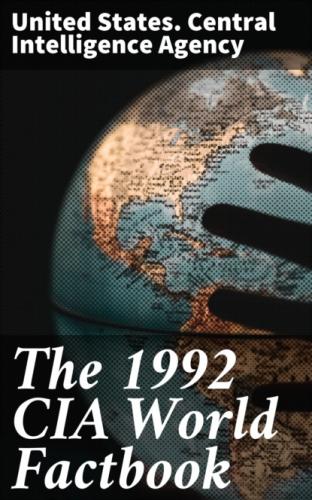none
Climate:
temperate; snowy, cold winters and cool, dry summers
Terrain:
rugged mountains dissected by narrow valleys
Natural resources:
hydropower, mineral water, timber, iron ore, lead
Land use:
arable land 2%; permanent crops 0%; meadows and pastures 56%; forest and
woodland 22%; other 20%
Environment:
deforestation, overgrazing
Note:
landlocked
:Andorra People
Population:
54,428 (July 1992), growth rate 2.2% (1992)
Birth rate:
11 births/1,000 population (1992)
Death rate:
4 deaths/1,000 population (1992)
Net migration rate:
15 migrants/1,000 population (1992)
Infant mortality rate:
7 deaths/1,000 live births (1992)
Life expectancy at birth:
74 years male, 81 years female (1992)
Total fertility rate:
1.3 children born/woman (1992)
Nationality:
noun - Andorran(s); adjective - Andorran
Ethnic divisions:
Catalan stock; Spanish 61%, Andorran 30%, French 6%, other 3%
Religions:
virtually all Roman Catholic
Languages:
Catalan (official); many also speak some French and Castilian
Literacy:
NA% (male NA%, female NA%)
Labor force:
NA
Organized labor:
none
:Andorra Government
Long-form name:
Principality of Andorra
Type:
unique coprincipality under formal sovereignty of president of France and
Spanish bishop of Seo de Urgel, who are represented locally by officials
called veguers
Capital:
Andorra la Vella
Administrative divisions:
7 parishes (parroquies, singular - parroquia); Andorra, Canillo, Encamp, La
Massana, Les Escaldes, Ordino, Sant Julia de Loria
Independence:
1278
Constitution:
none; some pareatges and decrees, mostly custom and usage
Legal system:
based on French and Spanish civil codes; no judicial review of legislative
acts; has not accepted compulsory ICJ jurisdiction
National holiday:
Mare de Deu de Meritxell, 8 September
Executive branch:
two co-princes (president of France, bishop of Seo de Urgel in Spain), two
designated representatives (French veguer, Episcopal veguer), two permanent
delegates (French prefect for the department of Pyrenees-Orientales, Spanish
vicar general for the Seo de Urgel diocese), president of government,
Executive Council
Legislative branch:
unicameral General Council of the Valleys (Consell General de las Valls)
Judicial branch:
civil cases - Supreme Court of Andorra at Perpignan (France) or the
Ecclesiastical Court of the bishop of Seo de Urgel (Spain); criminal cases -
Tribunal of the Courts (Tribunal des Cortes)
Leaders:
Chiefs of State:
French Co-Prince Francois MITTERRAND (since 21 May 1981), represented by
Veguer de Franca Jean Pierre COURTOIS; Spanish Episcopal Co-Prince Mgr. Joan
MARTI y Alanis (since 31 January 1971), represented by Veguer Episcopal
Francesc BADIA Batalla
Head of Government:
Oscar RIBAS Reig (since January 1990)
Political parties and leaders:
political parties not yet legally recognized; traditionally no political
parties but partisans for particular independent candidates for the General
Council on the basis of competence, personality, and orientation toward
Spain or France; various small pressure groups developed in 1972; first
formal political party, Andorran Democratic Association, was formed in 1976
and reorganized in 1979 as Andorran Democratic Party
Suffrage:
universal at age 18
Elections:
General Council of the Valleys:
last held 11 December 1989 (next to be held December 1993); results -
percent of vote by party NA; seats - (28 total) number of seats by party NA
Member of:
INTERPOL, IOC
Diplomatic representation:
Andorra has no mission in the US
:Andorra Government
US:
includes Andorra within the Barcelona (Spain) Consular District, and the US
Consul General visits Andorra periodically; Consul General Carolee HEILEMAN;
Consulate General at Via Layetana 33, 08003 Barcelona (mailing address APO
AE 09646); telephone [34] (3) 319-9550
Flag:
three equal vertical bands of blue (hoist side), yellow, and red with the
national coat of arms centered in the yellow band; the coat of arms features
a quartered shield; similar to the flags of Chad and Romania that do not
have a national coat of arms in the center
:Andorra Economy
Overview:
The mainstay of Andorra's economy is tourism. An estimated 13 million
tourists visit annually, attracted by Andorra's duty-free status and by its
summer and winter resorts. Agricultural production is limited by a scarcity
of arable land, and most food has to be imported. The principal livestock
activity is sheep raising. Manufacturing consists mainly of cigarettes,
cigars, and furniture. The rapid pace of European economic integration is a
potential threat to Andorra's advantages from its duty-free status.
GDP:
purchasing power equivalent
